The Nigerian Ministry of Foreign Affairs and the United Nations Development Programme (UNDP) have extended their collaboration to enhance their commitment to improving democratic governance in West Africa through the Regional collaboration for Democracy (RPD).
This was said during a high-level meeting between the UNDP and the ministry in Abuja.
The Regional Partnership for Democracy (RPD) is a strategic project that aims to solve current democratic difficulties while also developing inclusive, responsible, and resilient political systems throughout West Africa.
Speaking at the forum, Nigeria’s Minister of Foreign Affairs, Ambassador Maitama Tuggar, stressed that the partnership reaffirms a commitment to deepening democratic governance and institutional resilience in addressing the threats facing democracy across West Africa.
Today marks a major step for democracy in West Africa!
We are proud to partner with @NigeriaMFA through the Regional Partnership for Democracy, an African-led push for accountable governance, civic voice and strong institutions.
Grateful to H.E. @YusufTuggar for his leadership pic.twitter.com/37EpuO6rbg
— UNDP Nigeria (@UNDPNigeria) April 14, 2025
Ambassador Tuggar, while commending the UNDP for its support and guidance in actualising the Regional Partnership for Democracy, highlighted the Ministry’s resolve to work closely with UNDP and other key actors to align national strategies with regional frameworks to foster more transparent, inclusive, and sustainable democracy.
He said “We’re not simply saying, because we conceived the idea, we want to retain ownership; we’ll put it out there for collective ownership and for us to continue to work together to strengthen the very same institutions that we always complain about.
We say that a country is not working properly because there are no strong institutions. But it is those same institutions that are being accused of not being strong that are also expected to provide the guardrails to make democracy work. So, you can see the dilemma here, and that is why we truly must commend UNDP for stepping in to walk the walk and not just talk about it, but to begin to take the necessary actions to reify those same inst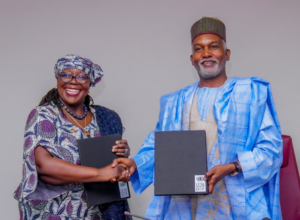
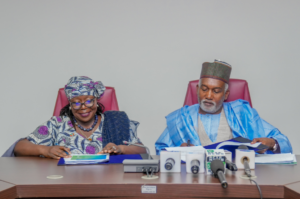
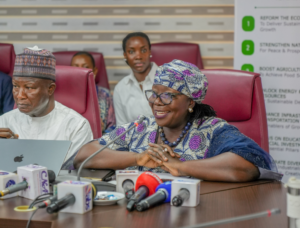
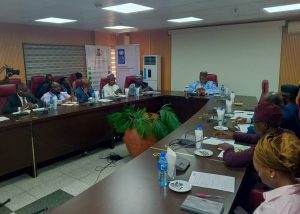
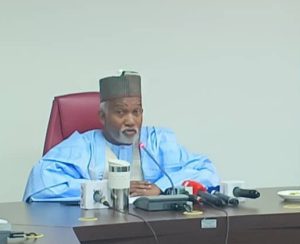
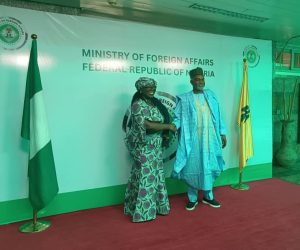 itutions that we keep saying have to be strengthened.”
itutions that we keep saying have to be strengthened.”
Responding, the UNDP Resident Representative in Nigeria, Elsie Attafuah, pledged UNDP’s support for the RPD through the provision of technical assistance, strengthening of institutional capacity and research-informed policy development.
“We are delighted to welcome this initiative, which is African-led, bold, practical, and people-cantered. We believe that together, we’ll deliver a regional legacy worth remembering. The initiative aims to address the challenges facing democracy in West Africa, including the spread of misinformation and disinformation.
The UNDP has been actively supporting democratic elections and governance in Africa for decades, working with governments, civil society, and other stakeholders to promote inclusive and transparent electoral processes,” she said
According to Ms Attafuah, the UNDP is ready and will draw on experiences from other countries and institutions, as well as work in partnership with the Nigerian government to scale the impact of the initiative across West Africa.
“We have country presence in 170 countries and territories worldwide. We can connect south to south, deepening networks and joining expertise to inform our work. The partnership is seen as a significant step in strengthening democratic institutions in West Africa, particularly in areas such as civic engagement, information integrity, and elections.”
The UNDP Resident Representative to Nigeria, while highlighting the importance of the creative industry in providing jobs for young people and generating revenue, restated support to promote Nigeria’s initiative in the creative industry.
The UNDP recognises the creative industry’s potential in driving development and promoting inclusive growth.
The Regional Partnership for Democracy (RPD) programme is to be piloted across West Africa, with Nigeria not only providing political leadership but also playing a central operational role in shaping the design, implementation, and knowledge-sharing process.





